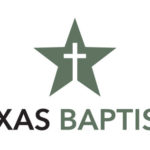Posted: 2/01/08
Global ills take center
stage at Baptist convocation
By Hannah Elliott
Associated Baptist Press
ATLANTA (ABP)—Baptists focused attention on social and global ills—materialism, climate change, HIV/AIDS and apathy—during the second day of a unity meeting in Atlanta.
Tony Campolo, Al Gore and John Grisham provided the notable speeches of the day, speaking at the New Baptist Covenant meeting.
Campolo, an author and social activist known for his brash northeastern brogue and socially progressive theology, told thousands of Baptists attending that they must “straighten out” their values when it comes to “which Jesus they preach.”
“It seems to me that all across America people have created a Christ very different from the one in the Bible,” he said. “He’s a cultural deity. … As I go across the country, the Jesus I hear most comes across as a white, Anglo-Saxon, Protestant, middle-class American. And the Jesus of Scripture is different.”
Campolo, 62, said Jesus preached good news to the poor—so church members should forsake materialism and give sacrificially.
The professor emeritus at Eastern University in Philadelphia didn’t leave his anyone out of his challenge, calling both young and old to live to glorify God.
| • See latest photos and the latest video clips from the New Baptist Covenant Meeting. (And go here to see our complete coverage of the event). |
“So many of you are retired, so what do you do with your time? Go out and play golf? … You have time and money to spend. You can spend it on something that really counts!” he said. After an eruption of laughter and applause, he added: “Rise up, you suckers, and go out and do the work of Jesus!”
In a two-hour lunch meeting, former vice president Gore found a responsive crowd for his message of global warming in the 2,000 Baptists who gathered to hear him.
Gore, 59, pounded out a message that related extreme poverty and global warming, addressed misconceptions regarding the climate crisis and offered hope for slowing and reducing carbon emissions.
He called on Baptists, including Rosalynn and Jimmy Carter, who were in the audience, to face global warming as an opportunity to change human history—and to demand that political leaders do the same.
“The purpose of life is to glorify God,” he said. “And if we continue to heap contempt on God’s creation, that is inconsistent with glorifying God.
“In every crisis there is an opportunity for a reawakening and for a reassessment and for a change of course and an opportunity to do things better, and that’s what the climate crisis is really all about.”
Trapped carbon holds the sun’s heat energy and warms the globe, Gore said. Some fluctuations in annual temperatures—even a brief warming period during medieval times —on Earth are normal, Gore said. But with nine of the 10 hottest years ever recorded appearing in the last 10 years, the current climate changes are anything but normal.
“Scientists are practically screaming to us that this is not natural,” Gore said. “I’ve never seen scientists in such a state of agitation, I’m telling you. When scientists use words like that, there’s a signal on the mountain. The trumpet is blowing.”
Grisham, a member of University Baptist Church in Charlottesville, Va., spoke in an address titled “Respecting Diversity.” He told the crowd the story of a young reporter interrogating him about his Baptist faith and how he had felt defensive about it.
“He thought we were all intolerant, narrow fundamentalists … and what really irked him was our willingness to be manipulated for political reasons,” Grisham said. “I really wanted to choke him, but I didn’t want to give him another bad example of a Baptist, so I let it go.
“I asked myself why. Why was I so defensive? What have we done? How and why is the Baptist name come to symbolize something that is wrong to a lot of people?”
The reason, Grisham said, is that Baptists have worked “so hard to exclude so many.”
The solution to “reclaiming” the Baptist good name is to respect diversity, stay out of politics and “spend as much time out there on the streets as we do in church,” Grisham said.
“As a church, our mission is to serve God through teaching, preaching and serving others. However evangelical politics have become a big business, and the results are disastrous for the church. When the church gets involved in politics, it alienates many of the people it’s supposed to serve,” he said.
Interspersed throughout the day were sessions expounding on Campolo’s, Gore’s and Grisham’s themes. Attendees at the meeting also joined Anglo and African-American preachers in a prophetic preaching conference that focused on applying the principles of Luke 4 to modern-day issues.
While Campolo urged Baptists to “challenge young people because we are losing them” because “we are making [Christianity] too easy for them,” panelists in an afternoon session said young people are bombarded with materialist and consumerist messages, but churches must respond by giving them a cause worth following.
Trevor Beauford, minister of youth and singles at Friendship Missionary Baptist Church in Charlotte, N.C., said students are often “doing missions to get theirs”—volunteering for school credit or to embellish an application. But church workers must help youth take interest in missions out of a desire for social justice and compassion, he said.
And children’s advocate Marian Wright Edleman said in the morning session that about 13 million children in America live in poverty—5.6 million of them in extreme poverty.
“The great German Protestant theologian Dietrich Bonhoeffer … believed that the test of the morality of a society is how it treats its children,” said Edleman, founder of the Children’s Defense Fund. “Our nation flunks Bonhoeffer’s test every hour of every day.”
Poor children who are minorities are disproportionately at risk of losing their way in life, she said. The most dangerous place to grow up in America is “at that intersection of poverty and race,” she said.
“I want to raise a loud gong of alarm today about America’s cradle-to-prison pipeline crisis,” she said. If the cycle is not broken, “we’re going to see racial and social progress go backwards, and we cannot do that on our watch.
“A black boy born in 2001 has a one in three chance of going to prison during his lifetime, a Latino boy a one in six chance, and one in three 20- to 29-year-olds—our fathers—are under correctional institution supervision or control.”
In a separate afternoon session titled “The HIV/AIDS Pandemic,” panelists called on churches to recognize the spread of HIV/AIDS as a justice issue that is also affected by poverty and incarceration. The issue is currently characterized by “an unholy trinity of silence, shame and stigma,” said Raphael Warnock, pastor of Ebenezer Baptist Church in Atlanta.
The disease affects a disproportionate number of African-Americans, he said: African comprise 12 percent of America's population, but they account for more than 50 percent of people diagnosed with HIV/AIDS.
AIDS is “inextricably connected to America's growing prison-industrial complex,” Warnock said, adding that with more than two million people in prison, many men participate in homosexual encounters and then return home to infect their wives and girlfriends.
Grisham summed up the theme of the day best when he told the evening audience that Baptists who really want to follow Jesus’ example should work to help everyone in need.
“We should spend as much time out there on the streets as we do in church,” Grisham said. “Jesus preached more and taught more about helping the poor and the sick and the hungry than he did about heaven and hell. Shouldn’t that tell us something?”














We seek to connect God’s story and God’s people around the world. To learn more about God’s story, click here.
Send comments and feedback to Eric Black, our editor. For comments to be published, please specify “letter to the editor.” Maximum length for publication is 300 words.